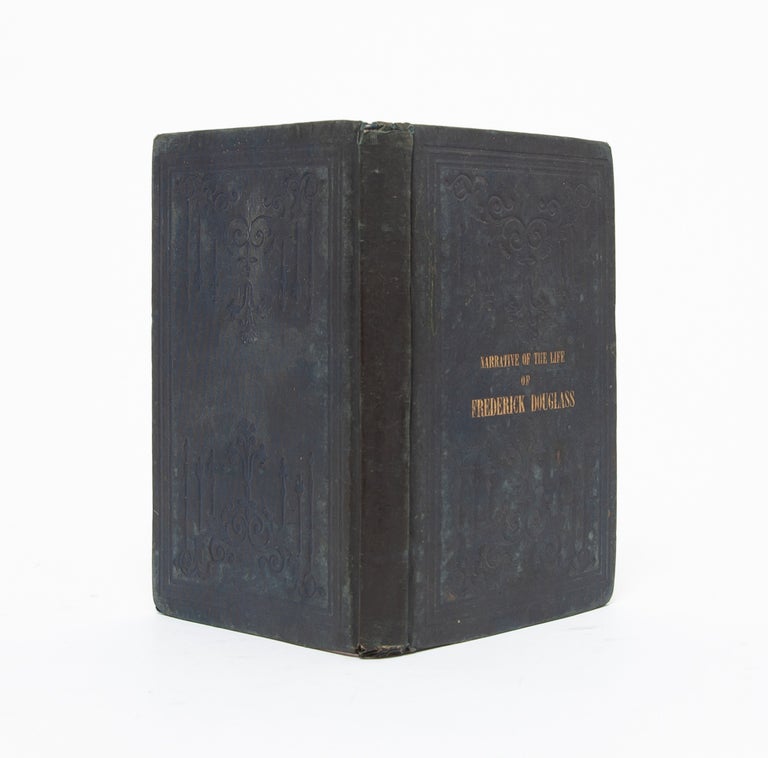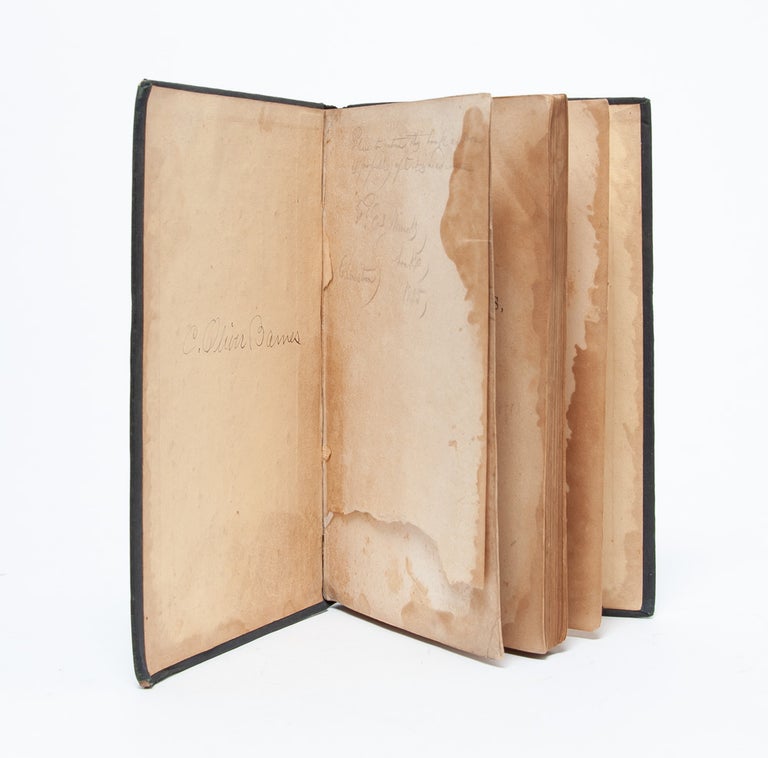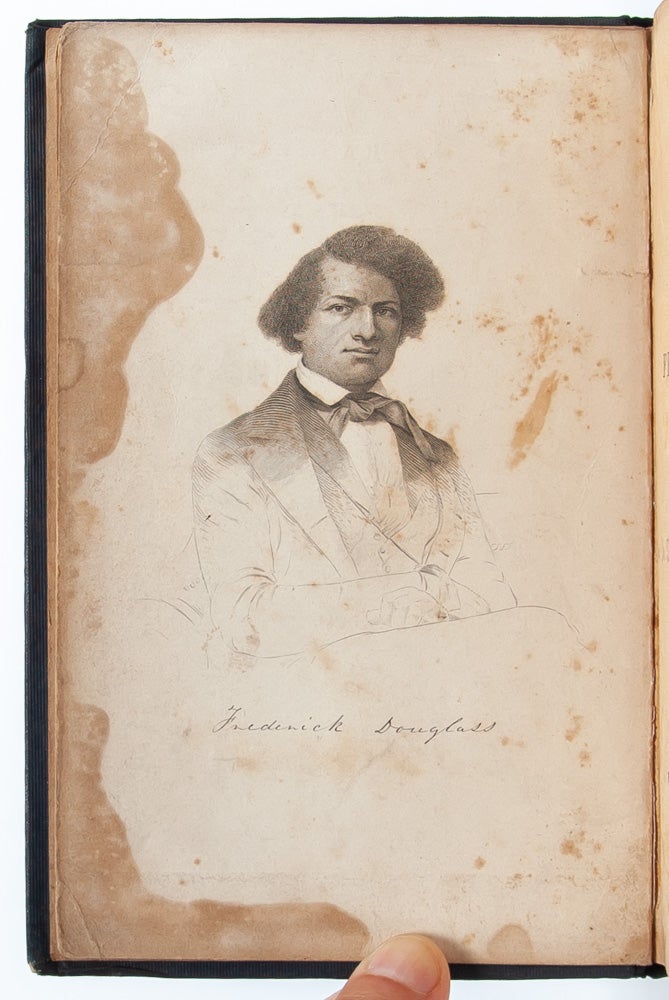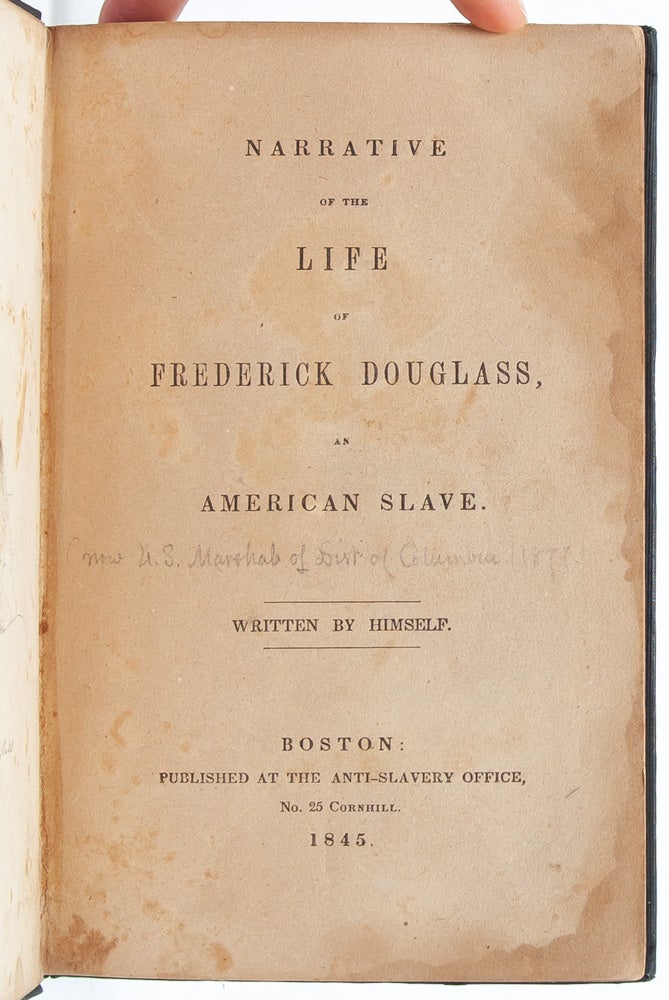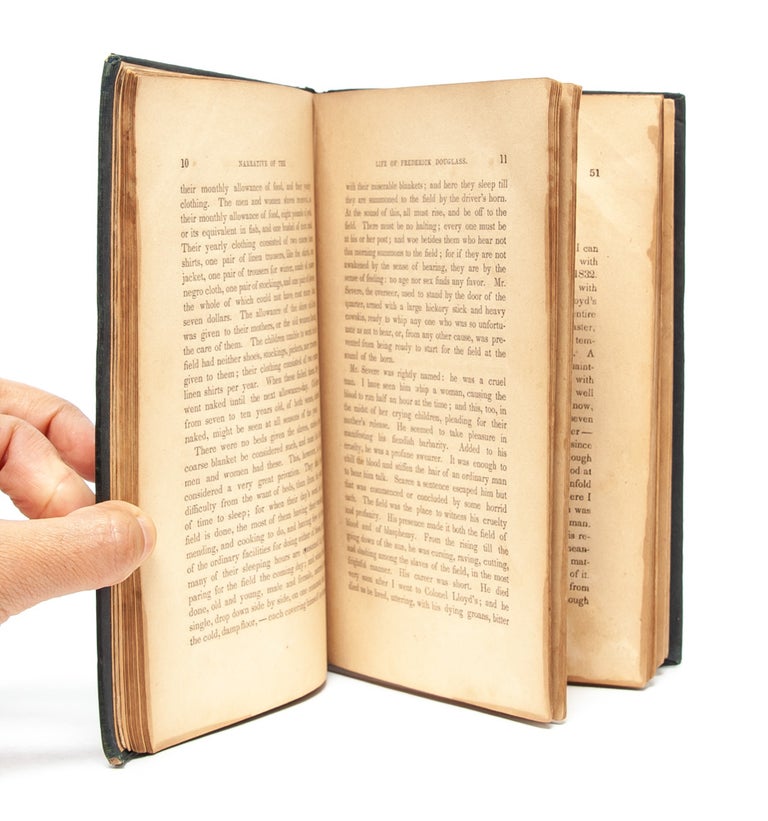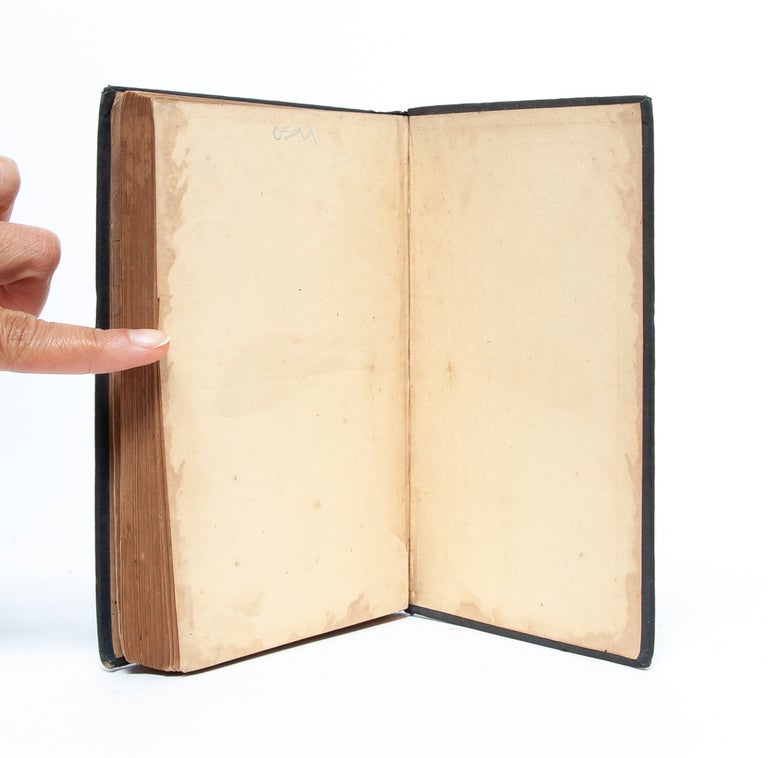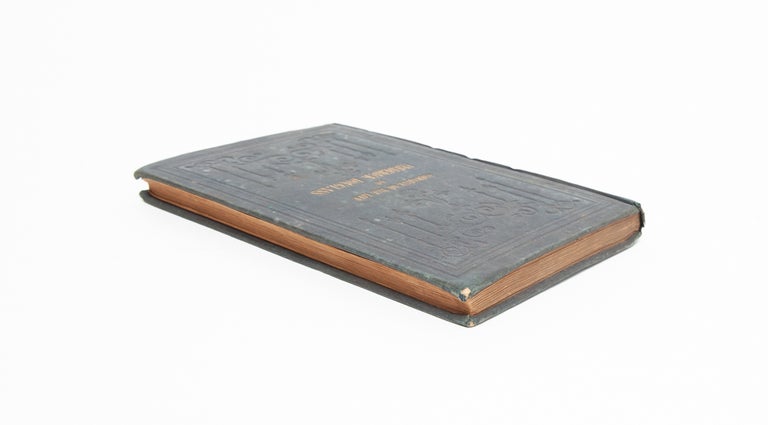Narrative of the Life of Frederick Douglass, An American Slave
Boston: The Anti-Slavery Office, 1845.
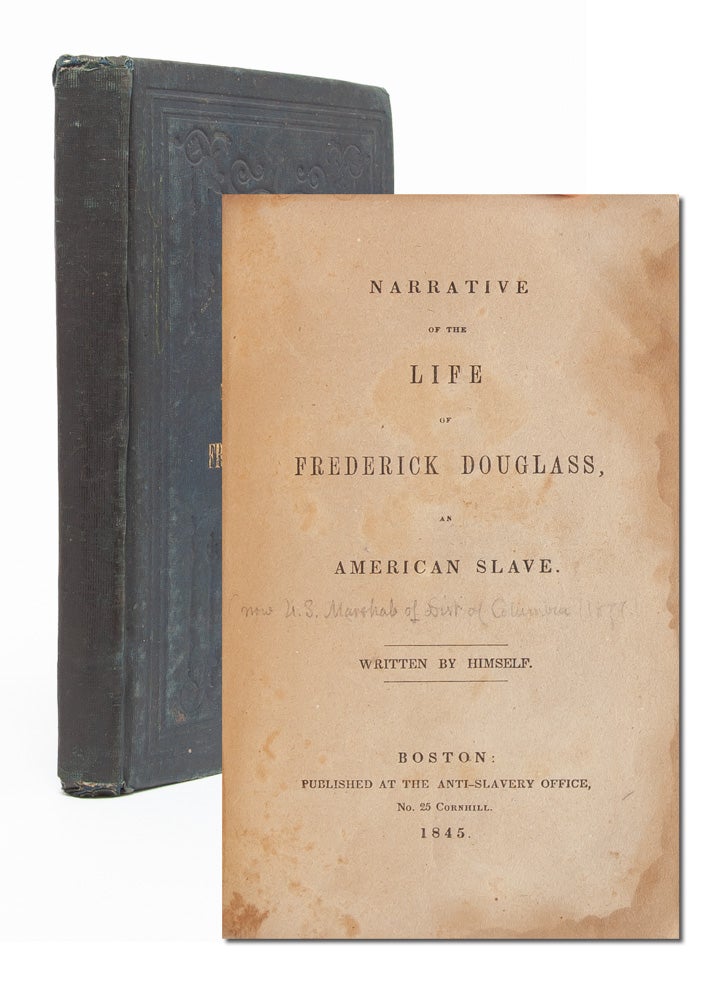

Narrative of the Life of Frederick Douglass, An American Slave
Boston: The Anti-Slavery Office, 1845. First edition. Original publisher's cloth binding embossed in gilt and blind. Spine gently rolled and light rubbing to extremities; binding tight and secure. Measuring 180 x 120mm and collating complete including the frontis: [2], xvi, 125, [1, blank]. Early ownership signature of C. Oliver Barnes to front pastedown. An inscription from the first owner on the front flyleaf reads "Please to return this book as soon as soon as possible after reading. F. E. Hinde, his booke. Charlestown 1845" and the same hand leaves an amendation in pencil on the title, beneath the words An American Slave, reading "Now U.S. Marshall of Dist. of Columbia (1877)" as well as a note on a rear flyleaf. Occasional pencil annotations. Front endpaper excised; portions of the front and rear flyleaves torn away. Scattered foxing and soiling, largely confined to margins. An exceptional example of an important book that is increasingly difficult to locate in collectible condition.
The first of three autobiographies by the abolitionist, educator, and political activist Frederick Douglass, published through the American Anti-Slavery Office to amplify Douglass' celebrity, expose previously withheld details about his background, and bolster the abolitionist cause. "Within five years of its release, it was translated into French, German, and Dutch. Along with his public lectures, the Narrative made Frederick Douglass the most famous Black person in the world" (Blight). The result of his enslaved mother's rape by a white man, Douglass was born into bondage that he continually and increasingly fought against. "In spite of laws against slave literacy, Frederick secretly taught himself to read and write...he organized a secret school for slaves," and he found that "literacy and a growing social consciousness made him an unruly bondsman" (ADNB). Unable to purchase emancipation, Douglass escaped his enslavers by taking on the false identity of a free Black sailor and fleeing to Massachusetts, where he began a life with his wife and children.
Douglass' exposure of this story in the public eye led both to greater danger of capture as well as new opportunities for permanently securing his freedom. "Although the Narrative enhanced Douglass' popularity an credibility, it increased the threat to his liberty. He was still a fugitive slave -- but now one with a bestselling autobiography" (ADNB). Thus he was able to sail to Britain, spending almost two years on a lecture tour and successful fundraising efforts that enabled him to "raise the funds necessary to purchase his freedom" (ADNB). Freedom secured, he returned to the U.S., launched the reform journal The North Star, and became one of the nation's most visible and influential advocates for abolition and women's rights. A book that helped Douglass define himself in the public eye, and which set him on a path to change American history. (Item #4149)

